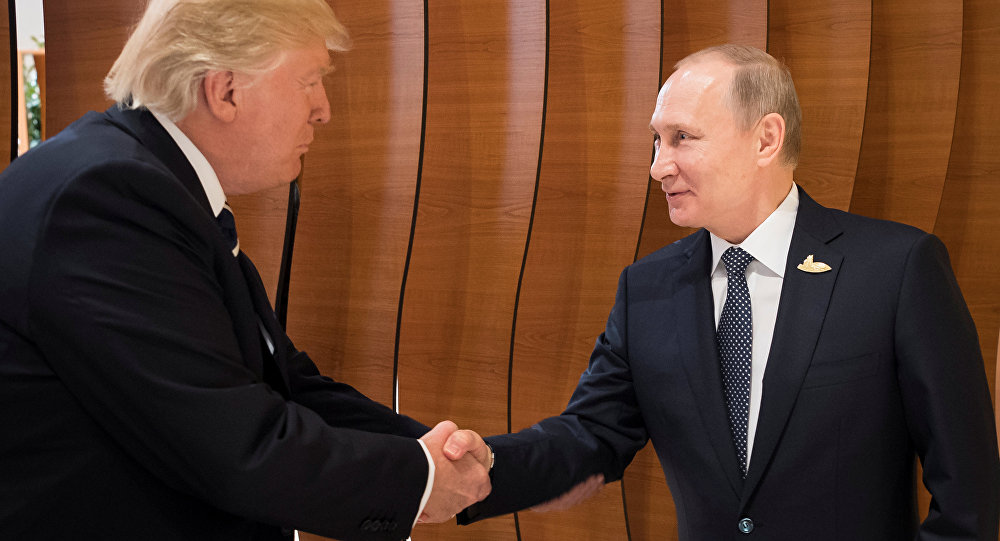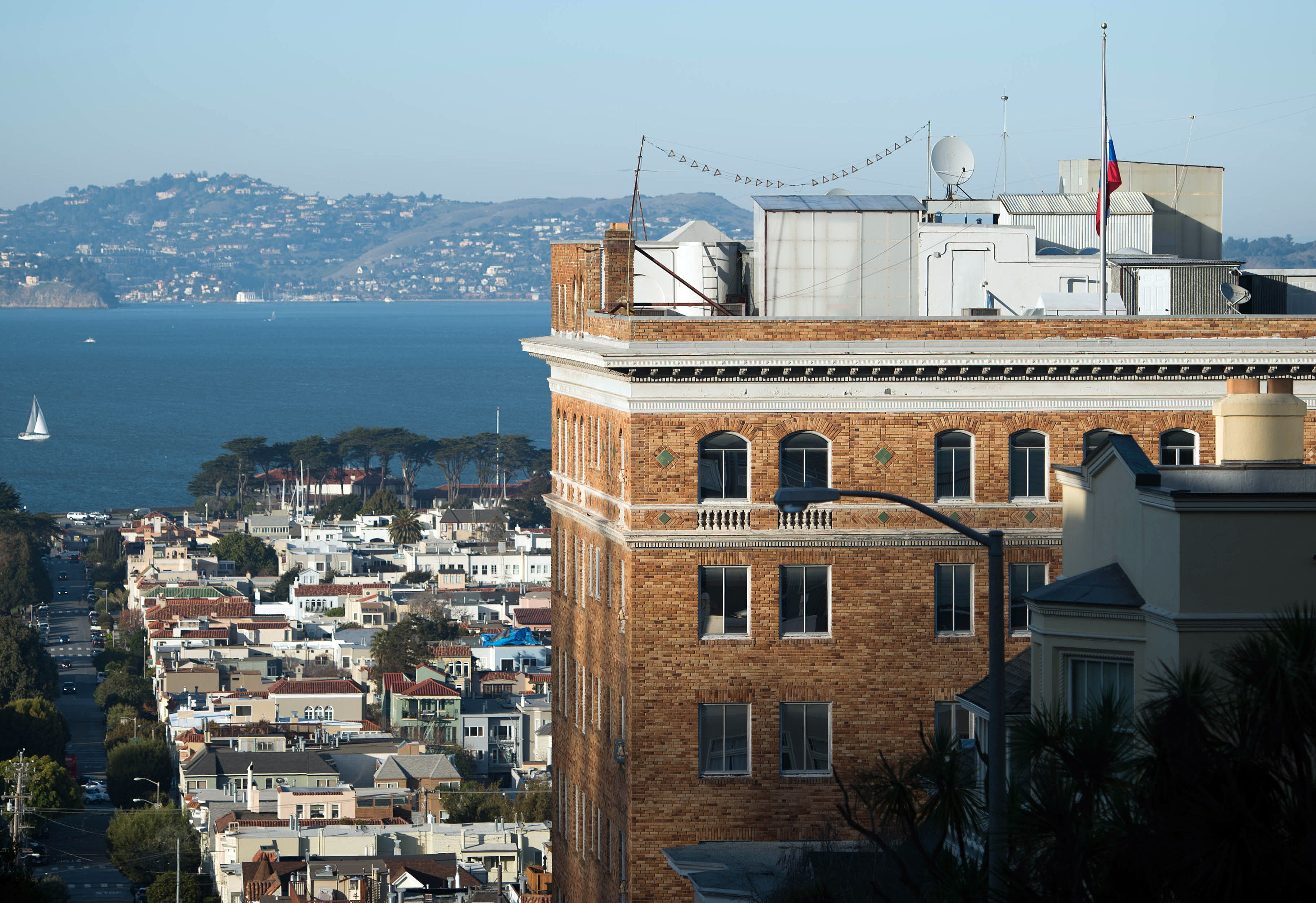
 A lasting peace with Russia entails mammoth potential benefits, Wall Street analyst Charles Ortel told Sputnik. According to the analyst, Donald Trump sees Russia as a pivotal global force. However, in the context of the ongoing Trump-Russia inquiry the US president avoids making concessions to Moscow.
A lasting peace with Russia entails mammoth potential benefits, Wall Street analyst Charles Ortel told Sputnik. According to the analyst, Donald Trump sees Russia as a pivotal global force. However, in the context of the ongoing Trump-Russia inquiry the US president avoids making concessions to Moscow.
While the diplomatic scandal between Washington and Moscow keeps raging on, there are more preconditions for the US-Russian détente than one can imagine, according to Charles Ortel.
"I believe that [US President Donald] Trump, himself, certainly views Russia as a pivotal global force, and the Russian people as natural allies for the American people," the Wall Street analyst told Sputnik.
Europe, US Allies to Benefit From Lasting Peace Between Moscow, Washington
How can Washington and Moscow mend fences, and are there really influential forces in the United States interested in fixing Russo-American relations and bringing them to a higher level?
The analyst believes that "there must be some useful people in both camps, including recent departures from the Trump administration, who see the clear merits… in true peace with Russia, for America and for [its] allies."
Ortel noted that "establishing lasting peace between Russia and the US would be a game-changer" not only for Moscow and Washington, but also for Europe: "With a verifiable peace, the US could consider reducing our military presence in nations that today are wealthy, and expensive."
"Assuming that large nations in Europe (Germany, France, the United Kingdom, Italy and Spain to pick a few) embraced this peace, cross border investment and trade opportunities would abound, and the postures of our military missions would likely change markedly," he said.
The Wall Street analyst believes that these changes will open the door to the emergence of independent European states, free from diktat of the "failing European Union bureaucracy." As a result, European powers will "resume robust, independent lives, ideally concentrating upon trade, in peace."
Once confidence is built, one might then turn attention to tougher challenges involving Libya, Syria and Iran, he noted, adding that there are also "major troubles looming in the densely populated nations of China and India."In contrast, the US and Russia, like many other underpopulated countries, "have resources (including vital water), cultures, traditions, and respect for intellectual inquiry that could allow them to cope and even thrive as the world weans itself from unregulated 'globalism,'" the Wall Street analyst predicted.
The question remains open: "How does one map out and walk along a path towards lasting peace?"
"That said and considering economics alone, President Trump must understand that a lasting peace with Russia entails mammoth potential benefits for our respective nations, though such a peace will not happen overnight, following surface level discussions," Ortel said.

US-Russian Diplomatic Row
The recent diplomatic row started over the expanded package of sanctions against Russia, Iran and North Korea adopted by the US in early August. Moscow announced that the diplomatic presence of the United States in Russia would be scaled down by 755 people to 455, which equates to the number of diplomatic personnel Russia has in the United States.
The move came also in response to the expulsion of 35 Russian diplomats and the closure of two Russian compounds in 2016 over alleged "Russian interference" in the US 2016 elections.
The question then arises as to why Trump didn't raise a finger to return two Russian diplomatic compounds "frozen" under Barack Obama, especially given his repeated vows to "get along" with Moscow.
"A related [question] is exactly who and how did the 'Moscow dossier' get to [US Senator John] McCain and then to [former FBI Director James] Comey, ultimately triggering the ongoing [Special Counsel Robert] Mueller inquest?" the analyst noted, referring to the Trump-Russia dossier written by Christopher Steele, a former British MI6 intelligence officer.
Without providing any evidence the Steele dossier claimed that Moscow interfered in the US presidential campaign and hacked the Democratic National Committee (DNC) email server. The dossier also presumed collusion between Russia and the Trump campaign. The report was denounced as a mere "forgery" by the Kremlin.
According to the analyst, "the theme that Russians 'hacked' the election has been one weapon used against Trump" by the US left-leaning mainstream media as part of an anti-Trump campaign, which got a second wind after Hillary Clinton's defeat in the presidential run.
"So, making public concessions to Russia likely was and may be viewed as toxic by Trump's political team," Ortel highlighted, assuming that "some advisors to Trump likely may tell him he has limited scope to change the framework of US relations with Russia," until Mueller concludes his investigation into the alleged Trump-Russia collusion.
The Russo-American relationship continues deteriorating under Trump. Nothing has changed much since December 2016 when Russian President Putin agreed with then-President-elect Trump that Russian-US relations "couldn't get worse."In response to Moscow's July measure the US Embassy in Moscow announced it was suspending non-immigrant visa processing in Russiastarting from August 23, citing lack of staff.
Additionally, on August 31 Washington demanded that Russia shut down its consulate general in San Francisco and two other diplomatic entities in New York City and Washington, DC, by September 2.
According to Ortel, Moscow has coped creditably with these challenges.
"I believe that Russia has handled the diplomatic compound issues with restraint and hope that these may pivot towards the place of encouraging Americans and Russians to get to know one another better, working and traveling together to achieve joint projects of mutual advantage," the analyst concluded.



_jpg/250px-ElbeDay1945_(NARA_ww2-121).jpg)





